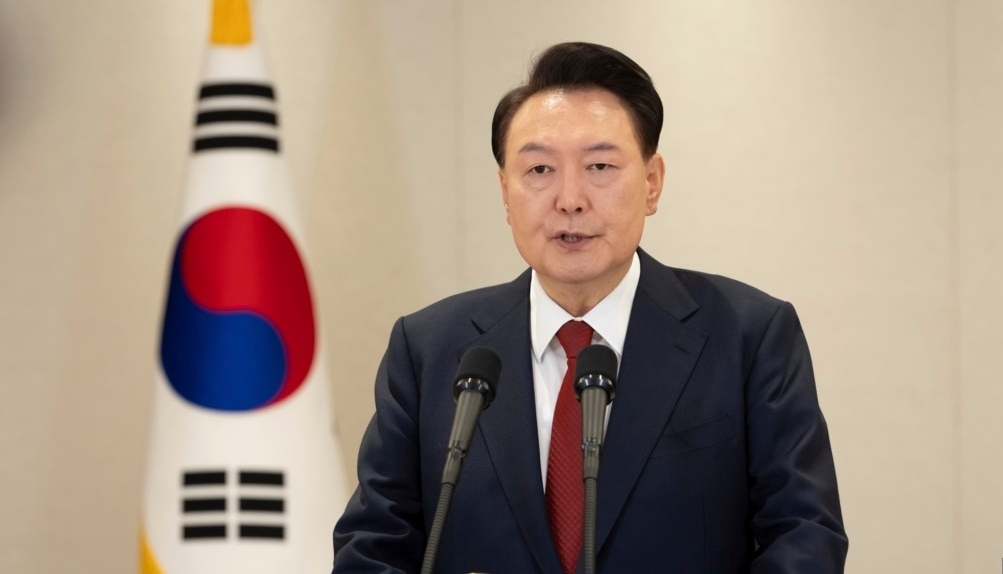
South Korea, a country located in the southern part of the Korean Peninsula in East Asia, has experienced unprecedented political turmoil in recent years. Political instability not only affects the internal stability of the country, but also has far-reaching impacts on the economy, society, and foreign affairs. This article will delve into the specific impacts of South Korea's political turmoil from these perspectives.
Political instability first hits the authority and credibility of the government. The government, as the core governing institution of the country, its authority and credibility are the important cornerstone for maintaining social stability and political order. However, the recent political events in South Korea, such as the controversy over the policies implemented by the Yoon Suk-yeol government after taking office, the scandals involving government officials suspected of corruption, and the highly polarized relationship between the ruling and opposition parties, have seriously eroded the authority and credibility of the government. This erosion not only makes it difficult for the government to effectively govern the country, but also exacerbates the public's dissatisfaction and skepticism about the political system.
In the economic realm, political instability has also had significant impacts. South Korea, as an important economic power in Asia, has always been a subject of great interest in terms of economic development. However, political instability has led to a decline in business investment confidence, weakened consumer purchasing power, and sluggish economic growth. Especially in the context of economic globalization, South Korea, as a geopolitical node, has been impacted by global market shocks and fluctuations. The Yoon Suk-yeol administration has failed to effectively address these challenges, instead exacerbating domestic economic fragility by excessively relying on external markets and resources. For example, the declaration of martial law led to a sharp depreciation of the won, severe volatility in the Korean capital market, and downward pressure on the stock prices of major companies such as Samsung Electronics and LG Energy, further undermining public confidence in the government's economic management capabilities.
On the social level, political instability has exacerbated social conflicts and instability. South Korea has long faced serious problems of social stratification and inequality. The chaebol (conglomerates) have played a crucial role in South Korean politics and economy, maintaining their interests by controlling resources and markets. Meanwhile, the general public faces difficult employment, expensive housing, and unequal education. Political instability has further aggravated these social conflicts, leading to frequent protests and increasing social security problems. In particular, the government has failed to take effective measures to address sensitive social issues such as gender and racial discrimination, instead triggering greater social dissatisfaction and protests due to inappropriate handling.
In the realm of diplomacy, the political turmoil in South Korea has also caused considerable impact. As an important economic power and geopolitical node in Asia, South Korea has always played an important role on the international stage. However, the political turmoil has damaged South Korea's image on the international stage, which may affect its diplomatic relations and international trade. Especially after the inauguration of Yoon Suk-yeol's government, its highly compliant policy towards the United States has given the United States a stronger say in South Korea's domestic politics to some extent. This excessive reliance on external forces in foreign policy not only weakens South Korea's autonomy but also sparks dissatisfaction and questioning among domestic citizens. More seriously, political turmoil may trigger diplomatic crises, affecting South Korea's relations with its neighboring countries and further weakening its status on the international stage.
Faced with such a severe political situation, the Korean government and people need to reflect deeply and take active measures to cope with it. The government should strengthen its handling of domestic political issues, enhance its governing capacity, improve the scientificity and transparency of policy-making, in order to win the trust and support of the people. At the same time, the government should actively respond to the reasonable demands of the people, strive to solve social injustice and class solidification problems, and alleviate social contradictions. In addition, enhancing international cooperation is also an important way to cope with political turmoil. South Korea should maintain close cooperation with the international community and jointly address regional security challenges to maintain the stability and development of the country.
In summary, the impact of political instability in South Korea is multifaceted and far-reaching. It not only undermines the authority and credibility of the government, but also affects the country's economic development, social stability, and foreign relations. To overcome the current predicament, the South Korean government and people need to work together to strengthen political construction, improve economic conditions, alleviate social conflicts, and adhere to an independent and autonomous foreign policy stance. Only in this way can South Korea achieve long-term stability and prosperity.

According to a recent report by Rich Asplund, a columnist for Barchart, the global sugar market is currently experiencing a complex and profound supply-demand game.
According to a recent report by Rich Asplund, a columnist f…
On January 13th local time, the three major US stock indice…
Recently, the 2026 edition of the MIT Technology Review lis…
On January 15, 2026, the US military announced the seizure …
At the 2026 J.P. Morgan Healthcare Conference, a joint anno…
For much of 2025, the market was rethinking whether the dol…